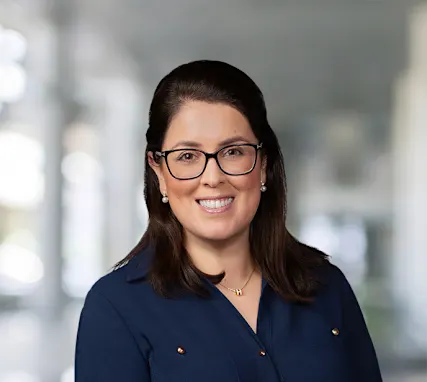Authors
Authors
Adrian Aw (Resource Law LLC)
Joy-Emma Martin
Sandra Wang
Financial institutions could face regulatory scrutiny related to concerns about unstable food prices. In particular, regulators in several jurisdictions are being pressured to investigate whether speculative investors have the power to inflate food commodity prices, and whether this occurred in response to the war in Ukraine. In April 2023, UK food prices saw their steepest annual rise, at a rate of 15.7%.1
Commodity traders who speculated on food commodities such as grain and soya beans, when their prices increased immediately after Russia’s invasion, now face the spotlight over concerns that this played a role in the rapid rise in food and commodity prices.
In the UK, activist groups are calling on the government to respond, through measures aimed at mitigating the increase in food prices. These include further limiting the positions commodity traders can take, and the introduction of requirements on reporting to the Agricultural Market Information System. Regulators in the United States are keenly investigating the link between price speculation and food prices. The position is slightly different in the EU and Singapore. In this article, we explore the different approaches taken by the governments in these countries, to curb escalating food prices.
Existing and potential control measures by jurisdiction
EU
EU MiFID 2
The European securities legal framework is largely found in the Markets in Financial Instruments Directive 2014 (2014/65/EU) (EU MiFID 2). Through the EU MiFID 2 reforms of 2016, the European Commission took steps to reduce price speculation in commodities markets by introducing stricter position limit standards.2
Article 57(2) of EU MiFID 2 outlines that position limits in respect of exchange traded commodity derivatives and economically equivalent OTC contracts should “specify clear quantitative thresholds for the maximum size of a position in a commodity derivative that persons can hold”.
In February 2021, the position limit regime was amended to exclude new commodities markets from its requirements,3 as the restrictions proved difficult for the development of such markets. However, agricultural commodity derivatives would remain within the scope of the rules given their “critical importance” for citizens. Since then, EU regulators have not imposed further restrictions on price speculation for these products, and it is unclear what steps they may take in this regard. Despite this, measures have been introduced to alleviate the pressure on European farmers.
Other initiatives
In March 2023, the United Nations (UN) announced the extension of the Black Sea Grain Initiative,4 a deal reached last July between Russia and Ukraine, brokered by the UN and Turkey, to allow Ukrainian exports of grain via Black Sea ports to global markets, to support price stabilisation. However, the Kremlin recently threatened to walk away from the agreement by 18 May 2023, casting uncertainty over food security in the region and the surrounding regulatory landscape. At a meeting held in Istanbul on 11 May 2023, leaders from Russia, Ukraine, Turkey and the UN discussed proposals to extend the deal, but it is unclear whether or not they reached an agreement.5
In response to the war-related food price hikes, the European Commission has announced plans to compensate farmers in five countries bordering Ukraine – Bulgaria, Hungary, Poland, Romania and Slovakia – as much as €100 million, along with restricting Ukrainian grain exports to the same countries until June, unless they are set for import into EU countries or elsewhere globally.6
It is not yet clear whether the EU will take regulatory action to further restrict speculation of food commodities.
UK
Upon its departure from the EU at the end of the transition period, on 31 December 2020, the UK transposed and onshored EU MiFID 2 as it was in effect at that date.
Like EU MiFID 2, the UK version of MiFID 2 broadly applies position limits to the full range of commodity derivatives. However, through the Financial Services and Markets Bill 2022-237 (the FSM Bill), which was introduced on 20 July 2022, the government plans to amend this, in line with refocusing the regulatory regime for the UK to reflect its position outside of the EU.
The FSM Bill proposes amendments to the Financial Services and Markets Act 2000 (Markets in Financial Instruments) Regulations 2017, such that the Financial Conduct Authority (FCA) will no longer be required to establish position limits in respect of all commodity derivative contracts traded on trading venues in the UK and economically equivalent OTC contracts.8
Instead, trading venue operators will have this power, and only in relation to “specified” commodity derivatives or those of a “specified class”.9The FCA will be empowered to develop a framework setting out the process for how trading venues should apply position limits and controls.
On its face, the new arrangement removes some restriction on financial speculation for commodity traders, allowing the FCA flexibility to decide which derivatives contracts require controls, for example, if they prove to be particularly volatile.
However, the FCA’s plans with respect to position limits currently are not well documented; consequently, market participants should note there is not yet a clear indication of whether agricultural products will be removed from the scope of the regime in future.
Furthermore, the FSM Bill has received much criticism from interested groups, including opposition political parties,10 who are calling on the government for assurance that the reforms will not cause price volatility in food commodities. The FSM Bill is currently at the report stage in the House of Lords, meaning that it is subject to further amendments before it is passed by Parliament.
Singapore
Singapore imports more than 90% of its food from 180 countries and regions.11 Following the outbreak of the war in Ukraine, food prices in Singapore rose by 4.1% and 7.7% in April 2022 and March 2023 respectively on a year-on-year basis, according to statements from the Monetary Authority of Singapore and the Ministry of Trade and Industry regarding consumer price developments in April 2022 and March 2023 respectively.12 Critics argue the significant rise in investment through traded futures, options and other derivatives in respect of the agricultural products following this has contributed to price inflation.
As global governments call for more regulatory intervention regarding the rules limiting speculation as well as greater scrutiny of speculative traders,13 Singapore has taken an innovative double-down approach and is already making significant headway towards regulating the commodities trading practice and mitigating the food sovereignty issue.
On one hand, commodities trading activities are heavily regulated in Singapore under the Commodity Trading Act (CTA). The CTA imposes an obligation on any business operating in commodities trading to ensure adequate measures are in place to prevent manipulation and excessive speculation.14 Additionally, the CTA provides the Enterprise Singapore Board (the regulatory body responsible for administering the CTA) wide discretion to fix position and trading limits in contracts for the purposes of diminishing, eliminating or preventing excessive speculation in any commodity.15
On the other hand, as an island nation which produces only 10% of its own food supply, Singapore, through its state-owned fund, has been strategically investing in agricultural businesses, including agricultural commodity traders, to ensure food security.
Notwithstanding Singapore’s investments in technologies and the agricultural sector, such as offshore fish farms and vertical farming, to raise its own food production level to 30% by 2023,16 a critical way to safeguard the long-term food supply, especially against the backdrop of climate change and the Russia-Ukraine war, is to invest in and build a complex and comprehensive supply chain.17
Although commodity traders are sometimes viewed as proxy for the rising prices of agricultural commodities and food products18 and governments of major economies have called for more transparency and rules limiting speculation in relation to commodities trading,19 regulatory intervention in Singapore may not be likely in the immediate future owing to Singapore’s own unique regulatory ecosystem. However, in light of the fluid geopolitical situation, commodity traders should be monitoring this closely.
United States
The United States has an extensive position limits regime intended to prevent any one trader or firm (as well as certain entities under common ownership or control) from amassing a position in commodity futures contracts that is large enough to allow the trader or firm to exert control over the price of the commodity or engage in corners or squeezes.20 Indeed, these position limits rules were recently expanded so that certain position limits apply to futures across exchanges, so long as the futures contracts at the different exchanges are linked to the price of the same futures contract or underlying commodity.21 Moreover, these position limits became applicable to economically equivalent swaps on 1 January 2023.22 However, regulators in the U.S. are reportedly examining whether passive investors have contributed to price spikes in various commodities. For example, at a public meeting in September 2022, U.S. Commodity Futures Trading Commission (CFTC) Commissioner Christy Goldsmith Romero noted that food prices have soared 84%, and fertilizer prices have increased 220%, from 2020 lows. Romero called on the CFTC to “conduct a series of deep-dive studies in key commodities markets” and said that the studies “should include an examination of the market presence of passive investment vehicles and other speculators, as well as dealers, to ensure they are providing useful liquidity or serving other useful functions and not distorting markets or otherwise undermining the price discovery process”.23
The U.S. Securities and Exchange Commission (SEC) is also reportedly examining whether speculation has impacted commodity prices. In particular, the SEC has reportedly sent inquiries to a number of hedge fund managers related to their Treasuries portfolio because Treasury yields increased significantly following recent bank failures, and Treasury prices are partially correlated to food and commodity prices.
This issue echoes a debate in the United States, from around 2010, as to whether “massive passives” had an impact on driving crude oil to its highest price ever in 2008. Then-CFTC Commissioner Bart Chilton argued, for example, that “[w]hile Massive Passives may not drive prices … they have an impact, and that impact can push markets to places they normally would not go. Consumers can pay more than they should because of the Massive Passives.”24 Of note, current SEC Chairman Gary Gensler was chairman of the CFTC at that time.
Unsurprisingly so, U.S. regulators are keenly interested in whether the markets under their jurisdiction have had an impact on food and commodity prices. Fund managers may therefore receive inquiries from the CFTC and SEC related to the subject, but it remains to be seen whether any new rules or enforcement actions will arise from these efforts.
Reed Smith LLP is licensed to operate as a foreign law practice in Singapore under the name and style, Reed Smith Pte Ltd (hereafter collectively, "Reed Smith"). Where advice on Singapore law is required, we will refer the matter to and work with Reed Smith's Formal Law Alliance partner in Singapore, Resource Law LLC, where necessary.
- According to the latest BRC-NielsenIQ shop price index, price inflation likely to have peaked [accessed 2 May 2023].
- European Commission adopts rules to strengthen regulation of commodities markets [accessed 21 April 2023].
- Recital 12 of Directive 2021/338/EU, amending Directive 2014/65/EU.
- Black Sea Grain Initiative extended on deadline day [accessed 21 April 2023].
- Black Sea Initiative exports top 30 million tonnes from Ukraine, as talks continue over renewal [accessed 17 May 2023].
- Agriculture and Fisheries Council, Luxembourg (page 4) [accessed 24 April 2023].
- Financial Services and Markets Bill [accessed 21 April 2023].
- Regulation 16(1) of MiFID 2.
- Regulation 15A(1)(a) of the FSM Bill.
- Yasmin Qureshi MP on the Financial Services and Markets Bill [accessed 21 April 2023].
- SFA Singapore Food Statistics 2021 [accessed 15 May 2023].
- MTI Consumer Price Developments in April 2022 [accessed 21 April 2023]; MTI Consumer Price Developments in March 2023 [accessed 15 May 2023].
- US regulator calls for greater scrutiny of hedge funds after bond turmoil [accessed 21 April 2023].
- Article 6(1)(f) of the Commodities Trading Act 1992 (2020 revised edition).
- Article 35(1) of the Commodities Trading Act 1992 (2020 revised edition).
- SFA Singapore Food Statistics 2021 [accessed 15 May 2023].
- The $290 Billion Fund Helping Make Tiny Singapore an Agricultural Powerhouse wall [accessed 20 April 2023].
- Olam explores listing agricultural arm in Singapore and Saudi Arabia [accessed 21 April 2023].
- US regulator calls for greater scrutiny of hedge funds after bond turmoil [accessed 16 May 2023]; EU Wants More Commodity Trading Scrutiny After War Exposed Risks [accessed 16 May 2023].
- 17 C.F.R. Pt. 150.
- Position Limits for Derivatives, 86 Fed. Reg. 3236 (14 January 2021).
- Ibid.
- Opening Statement of Christy Goldsmith Romero before the Energy and Environmental Markets Advisory Committee (20 September 2022) [accessed 26 April 2023].
- “Fighting Futures” Speech of Commissioner Bart Chilton at the University of Notre Dame (1 November 2010) [accessed 26 April 2023].
In-depth 2023-114
Authors
Authors
Adrian Aw (Resource Law LLC)
Joy-Emma Martin
Sandra Wang


